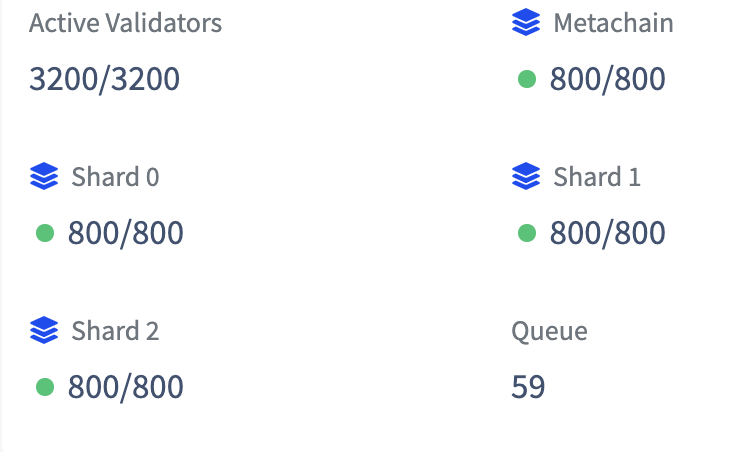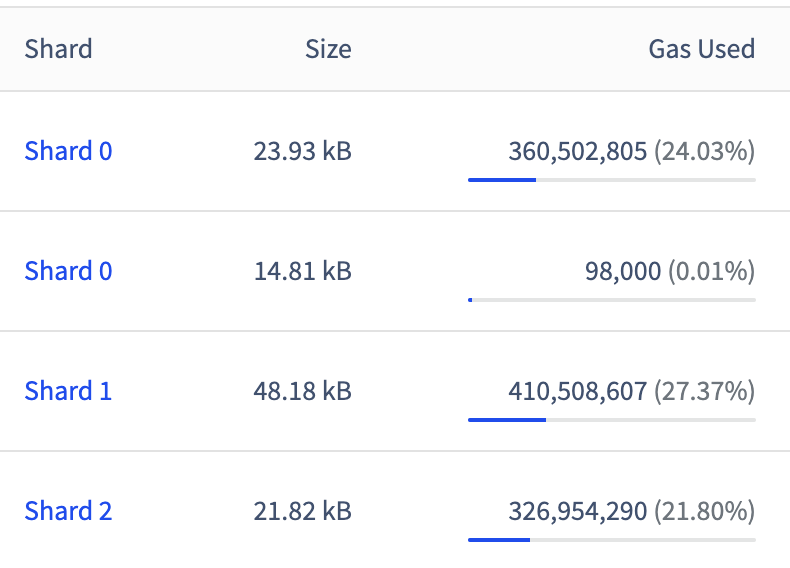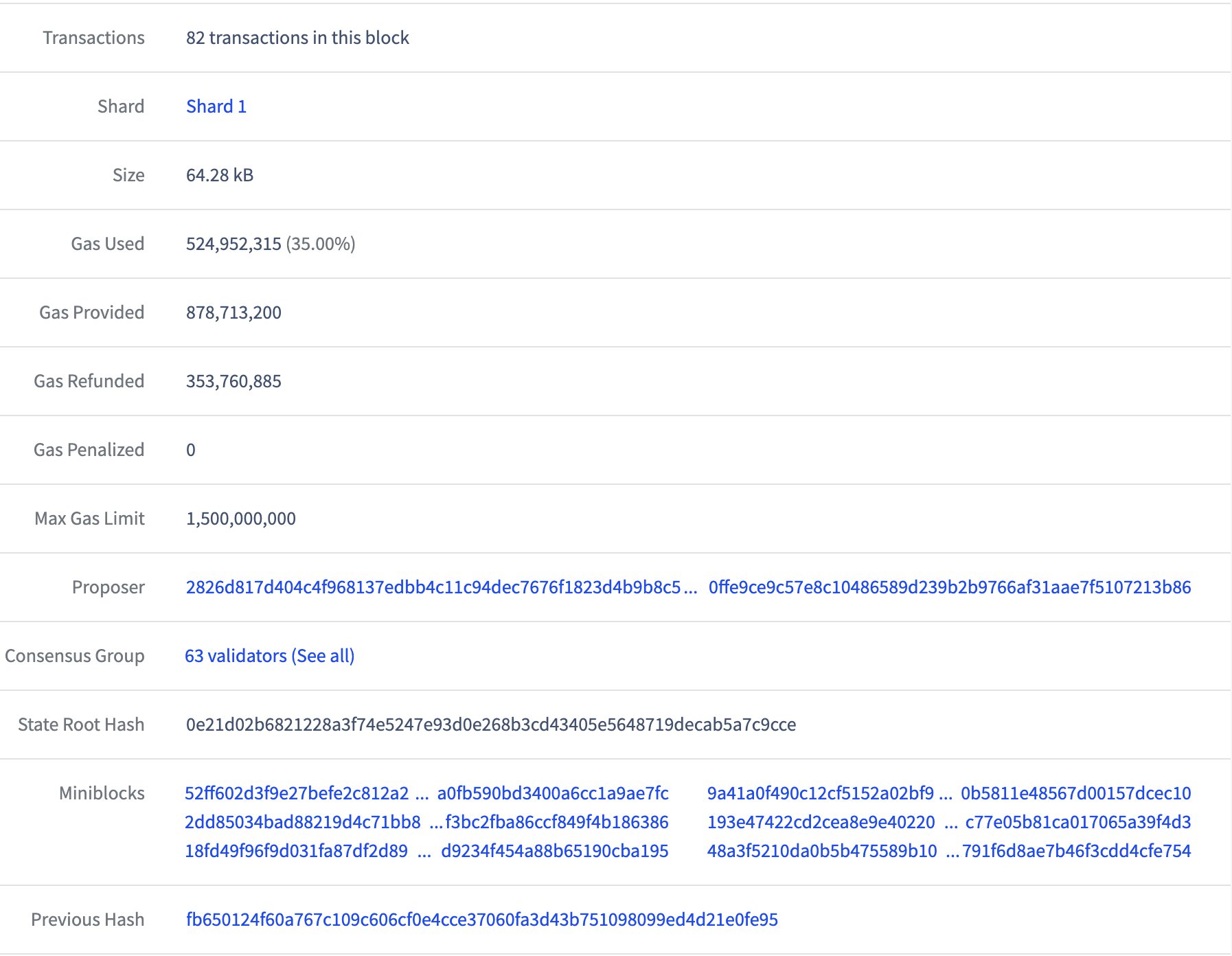The current limitations and future of the Elrond blockchain.
Elrond is a sharded network composed of 3 different shards.
(Metachain, shard 0, shard 1, shard 2).

The amount of shards is pretty much unlimited, making it possible to spread the transactions on a decentralised network.
Each shard creates a block every 6 seconds, and each block can process transactions of 1 500 000 000 gas /block.
An $EGLD transfer costs 50 000 gas, that represents ~30 000 tx in a block
With a block each 6 seconds, that gives us ~5 000 tx/second per shard.
With 3 shard that makes ~15 000 transactions per second.
- An ESDT transfer costs ~331 000 gas so: 4531 tx/block = 755 tps /shard
- A WrappedEGLD costs ~2 111 255 gas so: 710 tx/block = ~118 tps /shard
- A WEGLD <> USDC costs ~16 194 254 gas so: 92 tx/block = ~15 tps/shard
(Values shown on the explorer)
Depending on the nature of the operation for the validator, the amount of transactions per block/shard will be limited.
The dex's smart contract is effective only in the shard 1, at the moment.

Therefore, every adresses from shards 0 and 2 send their transactions through a mini-block to shard 1 to get made into a block.
Depending on the action of users, it will be possible to add or reduce the amounts of transactions into the block.

Conclusion:
Fortunately, this is only the first version of the Dex.
The multi-shard version is already in the making and will makes us able to use the full power and scalability of the network once it's released.
Until then, the improvements (of the current version) mainly aim at better organizing and optimizing the way the transactions are submitted to the website through the blockchain, to make sure each block is filled with as much transactions as possible.
Now that it's out of maintenance, the next steps are coming quickly, with new token listings, new farms, etc...
Written by Kévin lallement is translated by Carlo Kenolol
Tweet Share

You can check if you are not dealing with a scam
Check now

 @elrondwiki.elrond
@elrondwiki.elrond